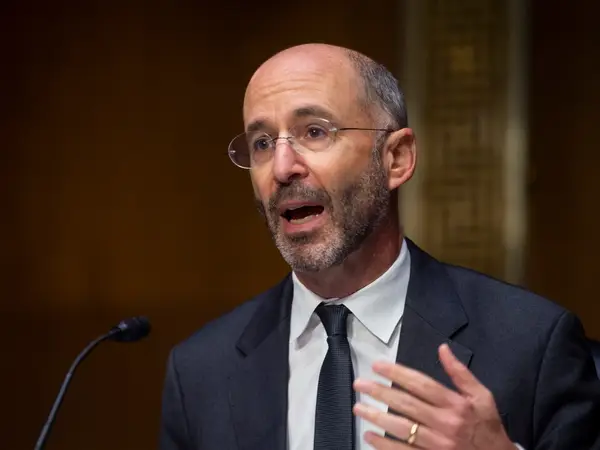Rob Malley, lead American negotiator in the Iran nuclear talks, told NPR Friday that United States officials were reviewing proposals from the European Union.
Last Monday Enrique Mora, the EU official coordinating talks, presented a text aimed at overcoming obstacles to renewing the 2015 Iran nuclear deal, the JCPOA (Joint Comprehensive Plan of Action). Iranian officials have said the text is under review in Tehran.
Malley, the White House special Iran envoy, acknowledged to NPR that EU mediators, who have chaired talks for over a year, believe negotiations have “exhausted their usefulness.”
“We’re considering the text very carefully to make sure it lives up to the president’s very clear guidance that he would only sign up to a deal…consistent with US national security interests,” Malley said.
Malley was pressed over reports the US has signaled willingness to rule out punitive action against non-US companies dealing with Iranian entities linked to Iran’s Revolutionary Guards (IRGC). This has been reported as a potential compromise consistent with President Joe Biden’s insistence he will not unilaterally remove the IRGC from the US list of ‘foreign terrorist organizations.’
“We have not, and will not negotiate any lowering of our standards,” Malley said. “If they [non-US entities] want to do business with Iran they have to respect our sanctions…any reports to the contrary…are flat-out wrong.”
Uranium traces – ‘no short-cut’
Malley also denied reports the US would agree, as part of JCPOArevival, to pressure the International Atomic Energy Agency to drop enquiries into uranium traces found in 2019 at Iranian sites used before 2003 but not declared as nuclear-linked. He reiterated the US position that, regardless of JCPOA talks, Tehran should satisfy the agency over the traces as part of its ‘safeguards’ commitment under the Nuclear Non-Proliferation Treaty.
“Really what the agency is interested is not so much pre-historical, or historical, explanation,” Malley said. “They want to know where is that uranium today, that it’s accounted for, that it’s under what is called ‘safeguards’… There’s no short-cut.”
Malley refused to put forward any figure for assets Iran might access with JCPOA restoration – with the release of money frozen worldwide in banks fearing US secondary sanctions – or for what Tehran might net from higher oil sales, currently facing US ‘maximum pressure.’
He said a restored nuclear deal would be better than Iran “with an unconstrained nuclear program and with more aggressive regional behavior” as had occurred since President Donald Trump withdrew the US from the JCPOA in 2018, prompting Iran by 2019 to expand its atomic work beyond JCPOA limits.
Sunset clauses
Questioned over ‘sunset clauses’ under which JCPOA limits expire, Malley stressed the deal’s constraints. “In 2023 they can do more research and development on some advanced centrifuges, they cannot install them. The main constraint…[which] puts Iran several months away from having enough fissile material for one bomb… would last until 2031…The situation we’re in today, as a result of the decision to withdraw from the deal, is Iran is only a handful of weeks away from having enough fissile material for a bomb…”
JCPOA critics in Tehran and Washington have seized on the current negotiations pause. Veteran newspaper editor Hossein Shariatmadari wrote Wednesday that further talks were “futile.” In the US, Republicans and other deal opponents have cited an alleged Iranian plot to kill former national security advisor John Boltonand Friday’s attack on writer Salman Rushdie in arguing for an end to nuclear talks or expelling Iran’s diplomats at the United Nations in New York.
